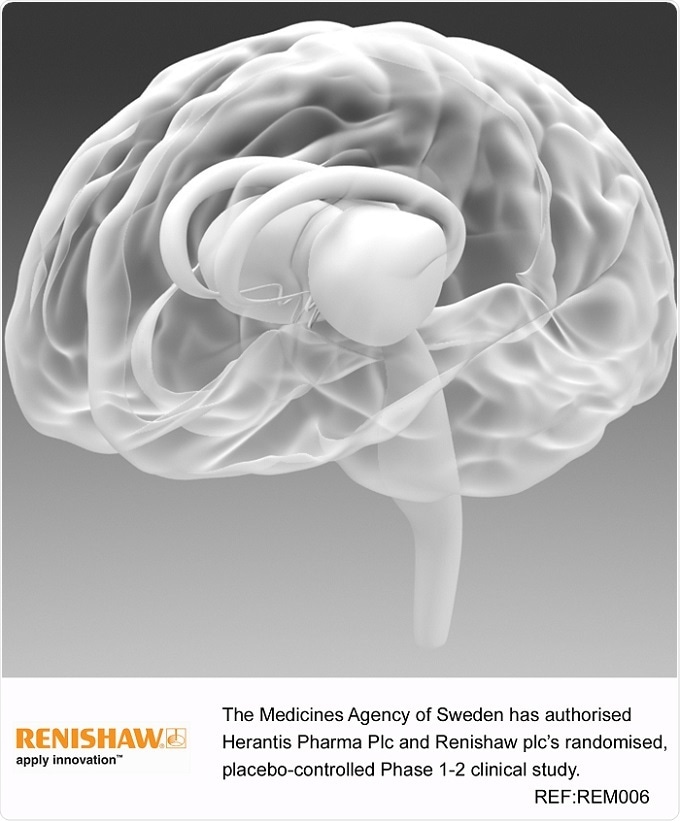Apr 4 2017
The Medicines Agency of Sweden, MPA, has authorised Herantis Pharma Plc and Renishaw plc’s randomised, placebo-controlled Phase 1-2 clinical study, for the investigation of Cerebral Dopamine Neurotrophic Factor (CDNF) and Renishaw’s chronic drug delivery system, in Parkinson’s patients.

The first study site to start patient recruitment will be the Karolinska University Hospital in Stockholm, Sweden. Two other university hospitals are planned to join the study later. The clinical study intends to recruit a total of 18 patients with Parkinson’s disease.
Paul Skinner, General Manager for Renishaw’s Neurological Products Division, said, “This is an important step forward in the use of the Renishaw drug delivery system, and in gathering clinical data for the delivery of therapeutics across the blood-brain-barrier.”
Parkinson’s is a neurodegenerative disease, caused by the break-down of dopamine producing neurons in the brain. Symptoms include involuntary shaking, stiffness of muscles and slowing down of movement, which can be extremely debilitating. In addition, patients can suffer associated non-motor symptoms such as difficulty sleeping, memory loss, anxiety and depression. Whilst these symptoms can initially be managed with medication, there is currently no treatment available that effectively prevents disease progression, or that treats the motor and non-motor symptoms together.
CDNF aims to relieve the symptoms of Parkinson’s by protecting dopaminergic neurons and restoring their functionality. However, due to the size of the molecule it will not cross the blood brain barrier and therefore needs to be delivered directly into the brain. The clinical study has received funding from the European Union’s Horizon 2020 research and innovation program under grant agreement number 732386.
Source: Renishaw